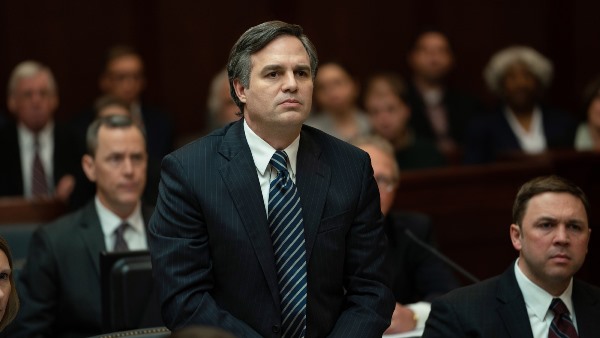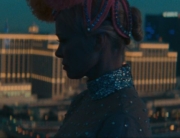
Much has been made recently about the imminent demise of the mid-budget, character-driven film made for adult audiences—The New York Times even forecasted its doom. Yet a malignant prognosis may be premature, given that for every box office disappointment such as Motherless Brooklyn, Blinded by the Light, and The Goldfinch, there are unexpected hits like Hustlers and the perennials vying for awards like Jojo Rabbit.
But if a case needs to be made that these films are in trouble unless they somehow stand out from the competition on streaming services and cable, then a prime example would be Todd Haynes’s dramatic diatribe Dark Waters.
Even with a prestigious cast that includes Anne Hathaway, Tim Robbins, Bill Pullman, this feels like a throwback to the made-for-HBO movies of the 1990s and early 2000s. With the exception of Edward Lachman’s overcast, gray palette—so grainy that you’d think it was shot on film and not digitally—this is otherwise a pedestrian dramatization of a landmark case of environmental destruction and corporate culpability, scarcely helped by a misplaced focus.
Actually, what may be most striking here is the rehabilitation of lawyers as good guys, selfless and morally courageous. At first, earnest everyman and reluctant crusader Robert Bilott (Mark Ruffalo) takes on a pro bono case solely out of obligation when Wilbur Tennant (Bill Camp), dressed in jeans and wearing a baseball cap, arrives unannounced at his Cincinnati high-rise office insisting on a meeting.
Bilott’s grandma, aka “Grammer,” referred the Parkersburg, West Virginia, farmer to her city slicker grandson. Tough and terse, Wilbur adamantly insists that a new landfill has contaminated his property, causing deformity and death for his cattle. He has video evidence and points the finger at DuPont, the town’s principal employer. The story line follows a paper trail after Bilott’s firm, which represents chemical corporations, cautiously allows him to take on the case, as long as it doesn’t occupy too much of his time. It begins in 1998 and leads to a class action lawsuit that drags into the 2010s.
After Wilbur sues for damages from DuPont, he and his family become Parkersburg pariahs; townsfolk gossip about them when they enter the local café, and the Tennants are shunned at their church. As the case grows wider and wider with more residents coming on board to sue DuPont for health-related issues, the West Virginians’ stories take on urgency in comparison to Bilott’s sleuthing.
His work mainly entails a protracted, painstaking search though millions of DuPont documents during the discovery process. He zeroes in on the significance of a particular waterproof chemical compound, and whether it is, in fact, government regulated. To spruce up the relatively dry tone of the legal legwork, the filmmakers throw in fake scares, startling viewers with a loud, showy thump as a thick stack of documents land on a bewildered secretary’s desk. The dialogue inevitably resorts to grandstanding when the head of law firm (Robbins) learns of the actions taken by DuPont, “These people have crossed the line. The hell with them.”
If it sounds like a more exciting and riveting film is hidden somewhere within this scenario, well it is, and it’s a documentary. Not only does Dark Waters have to compete with scripted television for eyeballs but also with the current crop of strong documentary films. Stephanie Soechtig’s The Devil We Know (2018) focuses on the citizen activism of Parkersburg residents who helped to uncover how DuPont had exposed their town to dangerous chemicals used in the manufacturing of Teflon, among countless products.
Bucky Bailey’s mother had worked for the company while she was pregnant, and her son, Bucky, was born with birth defects and underwent more than 30 corrective surgeries as a toddler. Now grown up, he appears in a cameo in Haynes’s film, bringing much needed authenticity to the retelling. Soechtig’s film also includes video footage shot by the real-life Wilbur Tennant. Next to Dark Waters, her nonfiction film is detailed and absorbing. (It’s currently streaming on Netflix, among other platforms.)
Pomposity aside, what may be most demoralizing about this docudrama is the demotion of Hathaway to the role of Sarah, a wife as a sounding board and critic. In her first scene, Sarah cares more about tile redecoration than her husband’s new case, and when his workload takes him away from time with his three sons, Hathaway has the unfortunate task of delivering a monologue that’s straight out of Saturday Night Live’s sendup of the reoccurring character Angel, the perpetually aggrieved girlfriend played by Heidi Gardner. The sentiment is virtually the same.






Leave A Comment